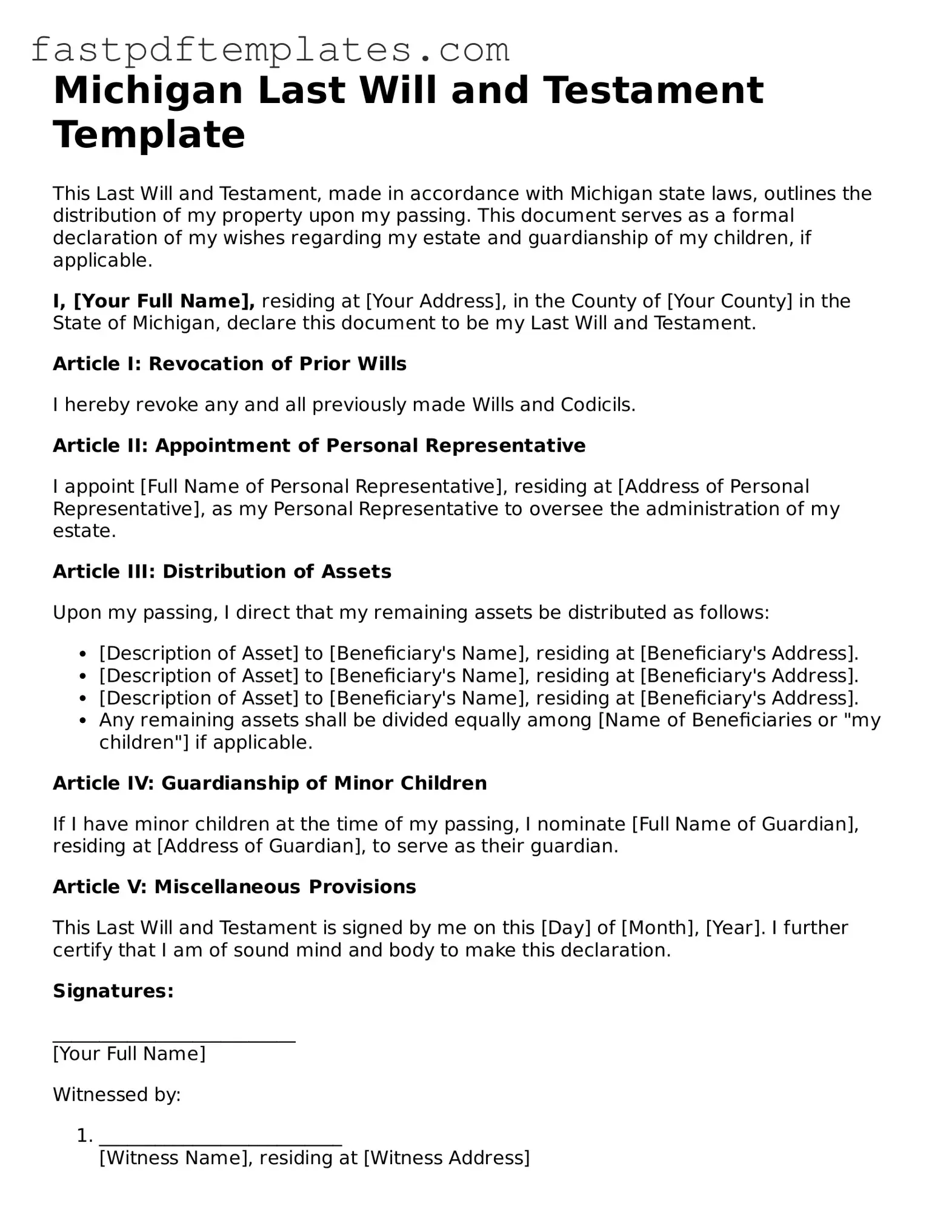Attorney-Approved Michigan Last Will and Testament Document
The Michigan Last Will and Testament form is a legal document that outlines an individual's wishes regarding the distribution of their assets after death. This essential tool ensures that one's intentions are honored and can help prevent disputes among heirs. Understanding how to properly complete and execute this form is crucial for anyone looking to secure their legacy.
Access Document

Attorney-Approved Michigan Last Will and Testament Document
Access Document
Your form still needs completion
Complete your Last Will and Testament online and download the final PDF.
Access Document
or
Click for PDF Form
